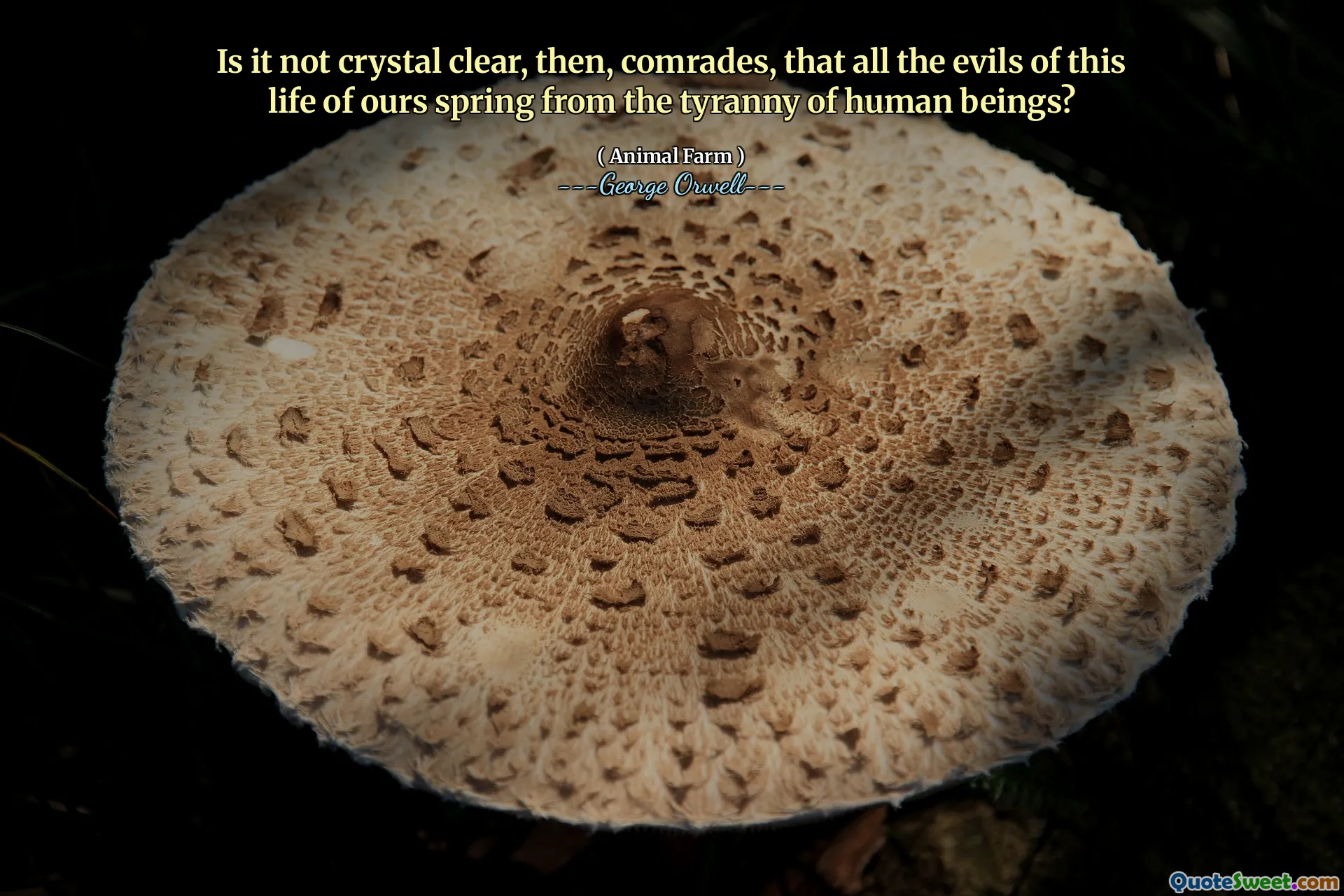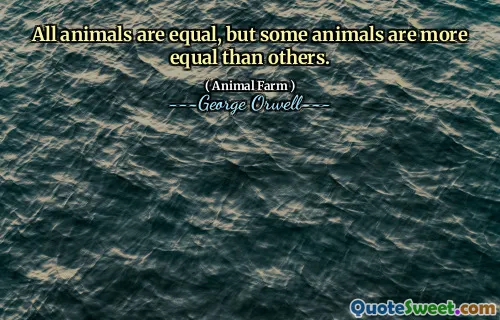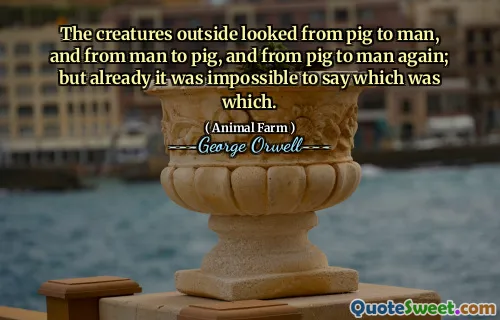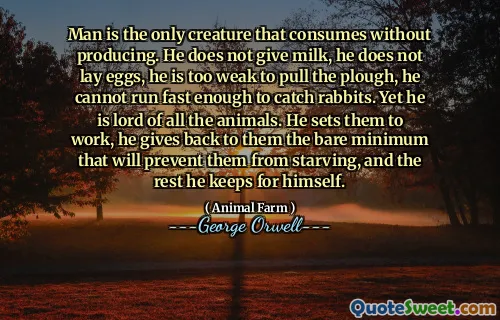
Is it not crystal clear, then, comrades, that all the evils of this life of ours spring from the tyranny of human beings?
This quote from George Orwell's Animal Farm captures the essence of the allegory that runs throughout the book—the exploration of power dynamics and the consequences of tyranny. It succinctly states that the root cause of suffering and misfortune in life is the oppression imposed by those in power—embodied here by human beings. The speech-like tone addressing 'comrades' invites a collective realization or awakening, suggesting that injustice is not an isolated experience but a systemic problem stemming from authoritarian control.
This reflection makes me think deeply about how pervasive the abuse of power can be in various realms of life—political, social, and even personal. The notion that tyranny is the origin of evil prompts readers to look critically at who holds power and how it is exercised. Moreover, the quote reveals the dangerous potentials of governance without accountability or empathy.
The portrayal of humans as tyrants also underscores a powerful irony: although the society depicted involves animals, the evils traced back to humans comment on real-world human behavior and political regimes. It serves as a timeless reminder that no matter what form our leadership or societal structures take, vigilance against tyranny must be constant if we wish to avoid a life full of suffering.
Reading this now makes me appreciate Orwell's skillful critique of totalitarianism and the importance of fighting for justice and equality in society. It compels us to consider the consequences of unchecked authority and the vital role of collective resistance.





